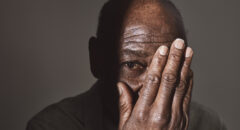Clinical trials are essential for advancing medical treatments, yet participation from Black communities remains disproportionately low. This gap stems from historical mistrust, misconceptions, and lack of information. Understanding these barriers is the first step toward creating more inclusive research that benefits everyone. Clinical trials editor Taylyn Washington-Harmon moderated this discussion on Clinical Trials Day, addressing common myths and misconceptions that Black Americans believe about clinical trials.
Common clinical trial myths and misconceptions
“I’ll be treated like a guinea pig”
The “guinea pig” myth remains one of the most pervasive concerns in the Black community. As Amanda Bishop, Clinical Trial Diversity Program Lead, Associate Director, Clinical Operations at Merck, explains, “This comes from the fact that there really is distrust for the medical community and for clinical research, and that’s because people’s race and people’s socioeconomic status have been used against them.”
“Clinical trials are only for really sick people”
Another common misconception is that clinical trials are only for critically ill patients. Eleanor Sales, Director of Clinical Research Operations & Board Member at Diversity Health NetWoRx, counters this belief: “You don’t have to be really sick to participate in clinical trials. And, actually, you participating as a healthy person helps us view the data that we need to show whether this drug actually works in humans or not.”
“Clinical trials are expensive”
Many also fear that participation comes with significant financial burdens. Bishop clarifies, “Clinical trial sponsors and health insurance may cover some of the costs associated with the study-related procedures, with the treatments and the medical care.”
“Once I’m enrolled, I can’t leave”
A critical part of this process is informed consent. “Before they would enroll in a clinical trial, participants have to receive detailed information about the study’s purpose, about the procedures, about potential risk, as well as the benefits,” says Bishop. She adds, “When you enroll in a clinical trial, you can choose to leave the clinical trial at any time.”
Clinical trials provide the best care
Dr. Michael Farkouh, Associate Dean for Research and Clinical Trials and Cedars-Sinai, highlights a compelling reason to consider clinical trials: “There’s a great statistic that shows that if you’re in a clinical trial, regardless of what you receive or what diagnostic or therapeutic intervention you’re randomized to, you have better outcomes. You have better surveillance, better contact with health care providers, more comprehensive care.”
Growing clinical trials requires trust
Addressing mistrust requires transparency, education, and community engagement. Bishop emphasizes that “clinical trials follow strict guidelines, regulatory standards. They’re designed to protect participants’ rights and safety.”
Dr. Yelba Castellon-Lopez, a research scientist at Cedars-Sinai, stresses the importance of community-centered approaches: “Working with the community and listening… I think if we stop and listen, that’s a really great way to start to build trust. And then building a bidirectional relationship, where it’s not just one-sided.”
How doctors are changing how trials are run
Healthcare institutions are implementing new strategies to increase diverse participation. Dr. Farkouh mentions using artificial intelligence to identify eligible patients, eliminating potential provider bias in who gets approached about trials.
“We are developing a strategy through our community engagement that we have a buddy system,” Dr. Farkouh explains. “Black patients who have participated in trials before could be supportive for patients who are considering randomizing in a clinical trial.”
Dr. Castellon-Lopez adds that “navigation and really leaning into our community health worker workforce, which usually represent our folks that are from the community, who have a desire to empower, is a great tool.”
What needs to be done next
As Taylyn Washington-Harmon of BlackDoctor.org summarizes, “Not including the proper populations is just bad science. If we don’t know how certain medications or certain treatments affect people of color, women, people of different genders and sexualities, how are we going to properly know the full scope of it?”
Clinical trials offer access to cutting-edge treatments and contribute to medical advancement. By addressing myths, improving transparency, and engaging communities meaningfully, we can build trust and ensure clinical research benefits everyone.








